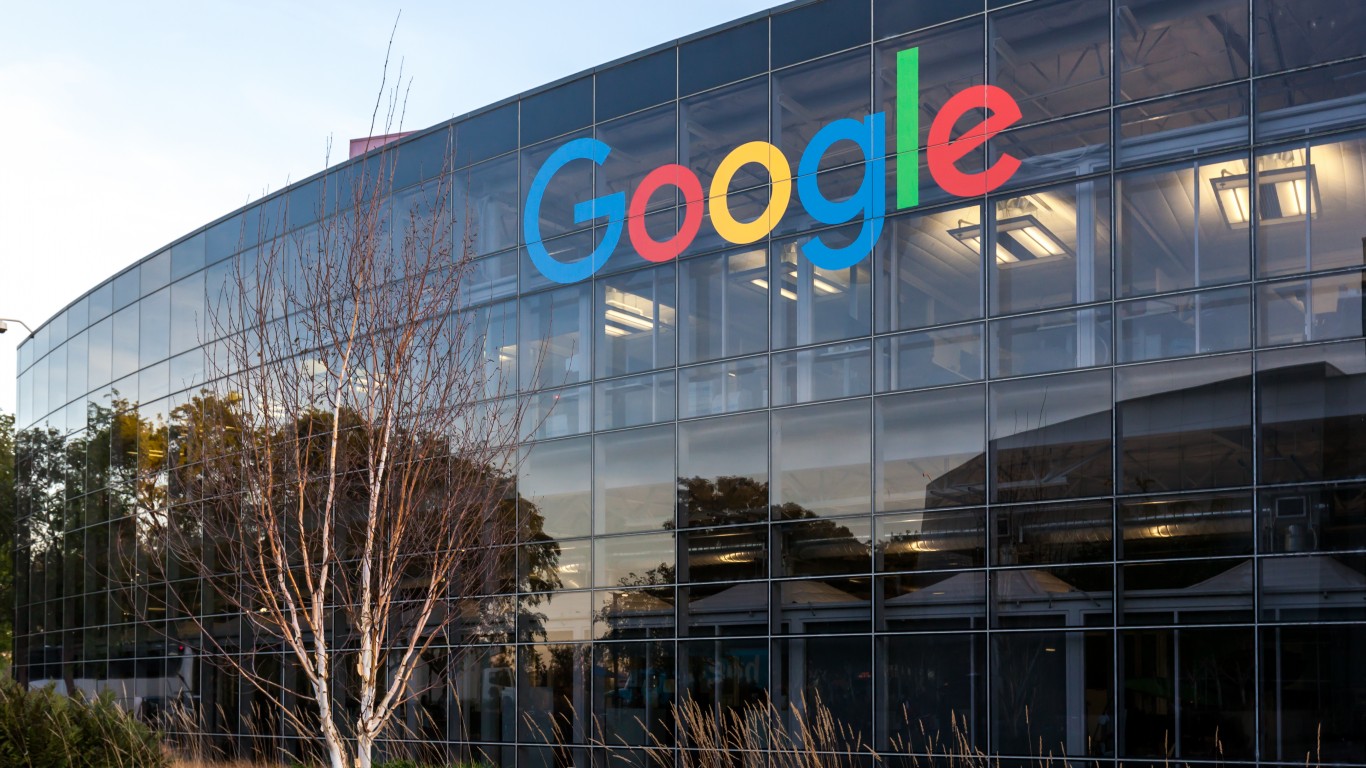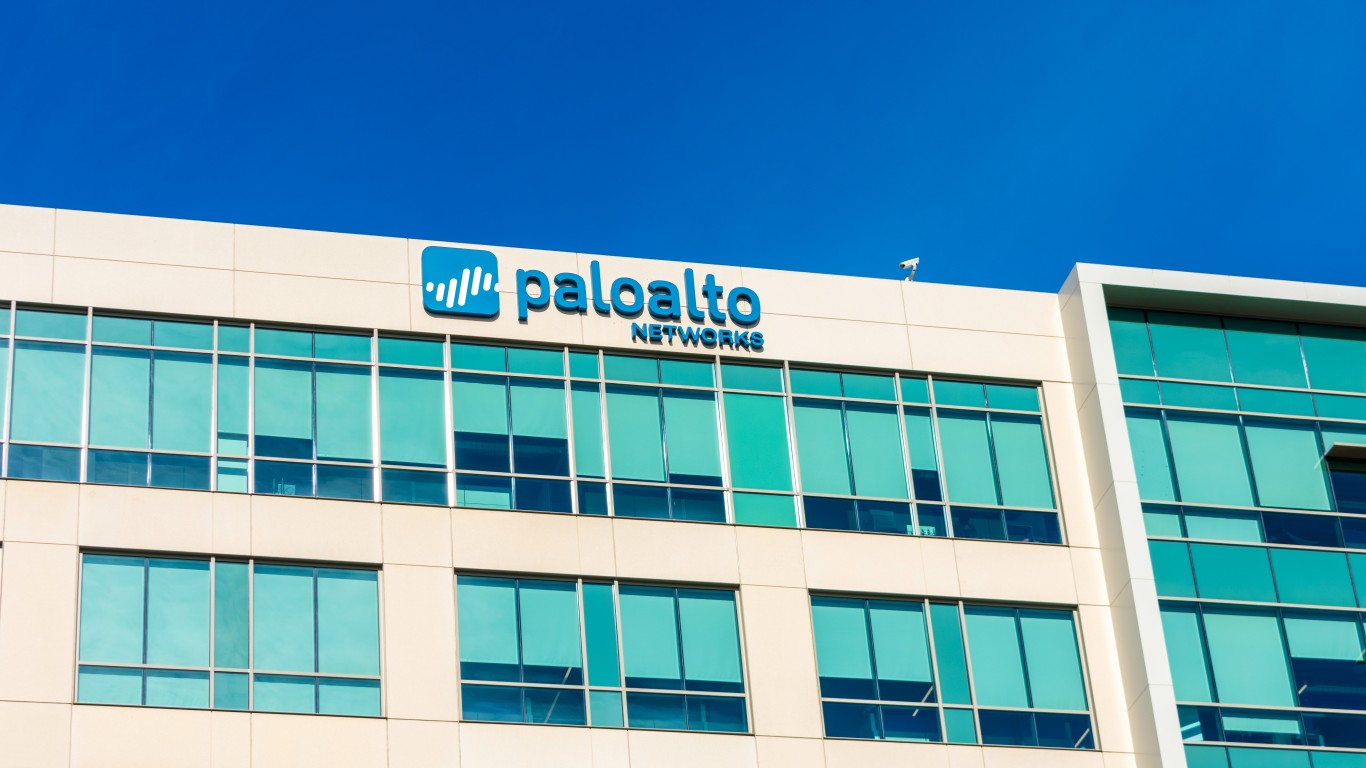
- A massive tech stock sell-off comes after weak jobs data.
- The Nasdaq briefly reached correction territory.
- Softer earnings of tech companies left stocks with muted gains.
- Also: Discover The Next NVIDIA.
Wall Street continues to scramble as U.S. stocks are trying to regain their footing following a broader market sell-off sparked by worrisome jobs data and softer quarterly earnings delivered by tech giants.
Still, investors anticipate that the Federal Reserve’s decision to keep interest rates higher for longer is putting pressure on the wider economy, as July’s job data showed employers adding fewer than expected jobs, while unemployment climbed to its highest level since 2021.
After hitting correction levels, investors are now more than ever focused on holding onto tech companies that can provide stability amid tumultuous market volatility. Despite having plenty to choose from, only a handful of tech stocks are now considered attractive enough for investors to buy and hold for the long term.

Alphabet
The parent company of internet giant Google, Alphabet (NASDAQ: GOOGL) experienced similar bloodshed on the stock market in recent weeks after its stocks plummeted by nearly 7% in a single day following the broader market sell-off on August 5.
While stocks have since advanced, current performance is approximately 17% below its former peak. Still, Alphabet recently delivered Q2 2024 earnings, and despite the company announcing a 14% improvement in year-over-year revenue, and seeing Search and Cloud revenue hitting a new record and surpassing $10 billion in quarterly revenues, share performance was somewhat softened by wider market volatility.
However, this doesn’t mean that investors should be looking the other way. Alphabet has forced itself ahead of competitors by investing heavily in artificial intelligence projects. On top of this, the company is focused on delivering a more efficient and more durable cost base, which could enable it to raise profits even during a wider market downturn.

Meta Platforms
The Facebook parent company Meta Platforms (NASDAQ: META) recently announced that the company is raising its forward-looking capital expenditure by investing more resources into AI product and service development.
This news wasn’t received well, at first. For Q2 2024, Meta reported total capital expenditure of $8.47 billion, including principal payments and financial leases, while total cost of expenses rose by 7% year-over-year to approximately $24.22 billion.
However, the rise in costs and expenses wasn’t what caught investors’ attention. Instead, the company delivered strong quarterly revenue of $39.07 billion, which was an increase of 22%, year-over-year. Additionally, the cost per ad on its family of apps increased by 10% compared to last year.
Meta is not only improving from earlier losses experienced during the height of the tech slump in 2022, but they are making improvements on their bottom line that could see them impressing investors while delivering more competitive digital products and services across its family of apps.

Palo Alto Networks
Palo Alto Networks (NASDAQ: PANW) is looking to capitalize on the artificial intelligence boom by becoming the premier cybersecurity provider for large-scale organizations and industry-leading development companies.
Not only this, the company is leveraging its current position to get ahead of its nearest competitor – Crowdstrike (NASDAQ: CRWD). This comes on the heels of a recent global tech outage caused by a faulty security systems update launched by Crowdstrike which affected thousands of Microsoft devices around the world.
In the aftermath of the tech outages, which left millions of passengers stranded at airports around the world and healthcare systems offline for several hours, CRWD stocks fell by nearly 15%. At the same time, PANW managed to gain a modest 2.38%, however, the company is still trying to make up for an embarrassing 28% loss experienced earlier in February.
The Santa-Clara-based company reported a strong third quarter, with revenue growing 15% year-over-year to approximately $2 billion. Delivery of (GAAP) net income of $278.8 million or $0.79 per diluted share was an improvement compared to $107.8 million or $0.31 per diluted share in Q3 2023.
With an adjusted free cash flow margin in the range of 38% to 39%, Palo Alto is focused on delivering strategic growth in areas that could provide the company with long-term upside potential against the backdrop of the wider AI hype.
Thank you for reading! Have some feedback for us?
Contact the 24/7 Wall St. editorial team.





